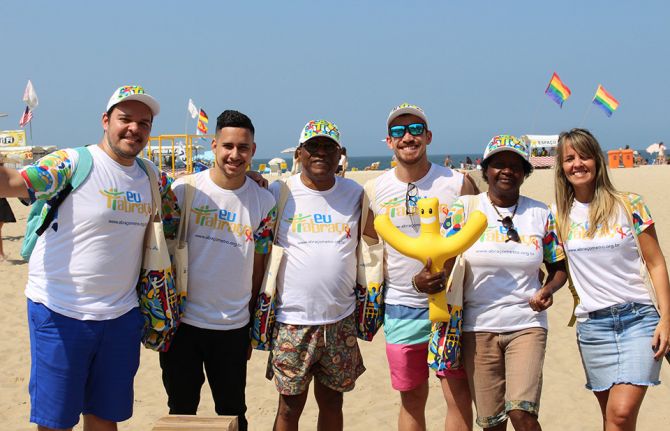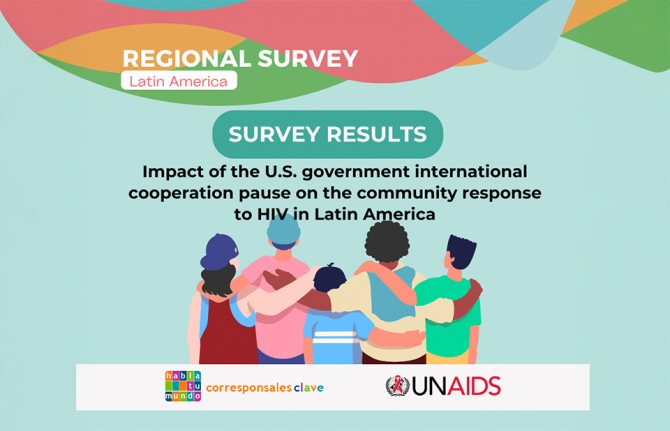

Feature Story
Promoting gender equality in Brazil step by step
30 October 2019
30 October 2019 30 October 2019Daniela de Barros, a Finance Assistant in the UNAIDS Country Office in Brazil, is also a UNAIDS Gender Focal Point for Latin America and the Caribbean.
She traces her interest and motivation to helping others and promoting equality back to a good deed in her childhood. “It was one of those dream-come-true situations. When my sister and I were younger, my parents couldn’t afford to pay for ballet classes. But their best friend’s sister ran a ballet studio and, one day, she invited us to start taking classes free of charge. From that point on, I never stopped dancing.” Ms de Barros says that dance has taught her to be disciplined, organized, focused and connected “body and soul” to her life and work.
“Besides all these important skills that I use all the time as a professional and as a mother of adolescent twins, I have also taken another important lesson from my ballet classes: I have learned how to connect with myself and meet my potential and my inner power,” she said. “Isn’t this what we want from such an important initiative like the UNAIDS Gender Action Plan? Empowerment and transformation for all women inside and outside this organization?”
From her role overseeing financial, administrative and operational aspects of the UNAIDS Country Office, Ms de Barros has seen that change management is crucial for maintaining staff motivation. “Although change generates some insecurity, in the end it can be a breath of fresh air. I have learned to recognize that change is important for organizations.”
Ms de Barros believes it is time that women were encouraged to be confident about achieving their goals. “The Gender Action Plan we have inside UNAIDS not only reinforces our self-confidence and courage, it also inspires men to support the women they work with,” she said.
Ms de Barros is sure that “UNAIDS chose her,” rather than the other way around. “I studied international relations and always wanted to work for the United Nations, but I confess I had never heard of UNAIDS until a friend of mine told me I should apply for the position,” she said. “I have grown a lot and learned so much from UNAIDS.”
She says that turning 40 years old has come with some significant changes for her and she now wants to engage in projects that can transform lives. For more than six months she’s been teaching ballet to other women and is just about to start what she describes as “a recently-born old wish”: teaching dance to young kids and adolescents from poor communities in Brasília, where she lives.
“I like to think of ballet as the realization of a Buddhist thought that says we see our external world from within, and that by working on our internal perspective, we can change the world outside. It is the power of dance and where it can take us. And this is what I want to teach children and women through the project.”



